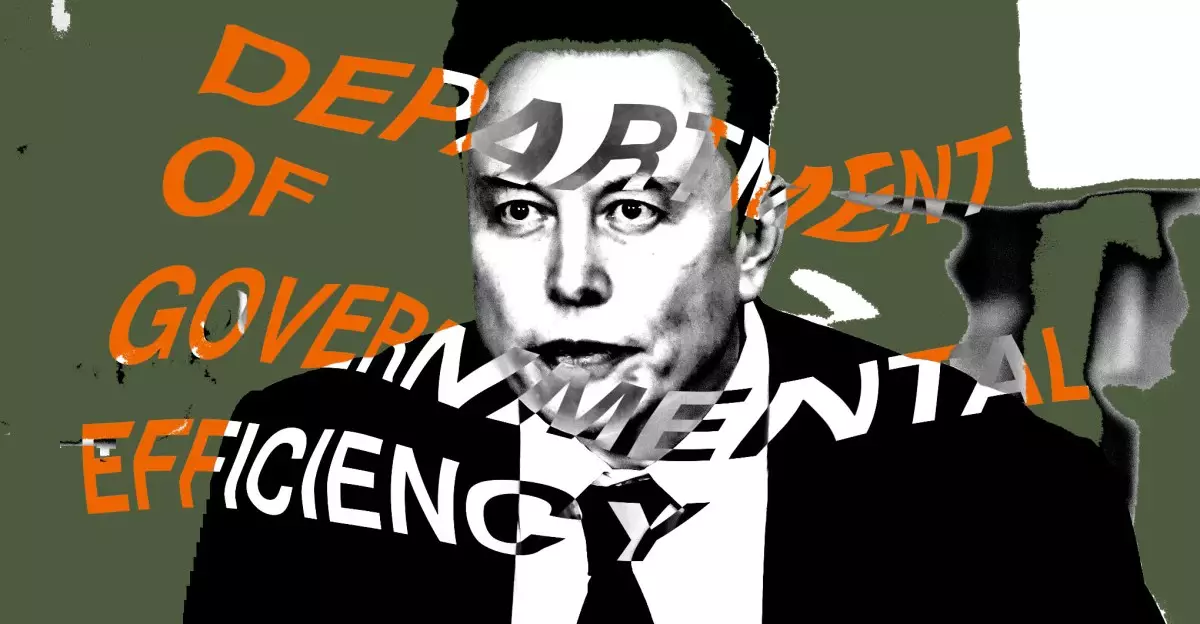In recent weeks, a significant controversy has erupted concerning Elon Musk’s alleged involvement with the United States government’s payment systems. The advocacy group Public Citizen has taken action, filing a lawsuit in Washington, D.C., seeking to halt what it describes as Musk’s “unlawful, ongoing” access to sensitive financial information. This development not only raises serious questions about the integrity of governmental processes but also reflects the complex interplay between technology and privacy in today’s landscape.
The lawsuit, initiated by Public Citizen on behalf of several labor unions including the Alliance for Retired Americans and the American Federation of Government Employees, comes in response to reports indicating that Musk’s “Department of Government Efficiency” (DOGE) may have gained unauthorized access to a myriad of personal information belonging to American citizens. The implications of this access extend far beyond mere financial transactions; they encapsulate the very essence of citizens’ trust in the government’s ability to protect their personal data.
The core argument of the lawsuit hinges on a perceived violation of the Privacy Act of 1974 and the regulations established by the Internal Revenue Code that governs taxpayer information. According to the complaint, by providing Musk access to federal payment systems, the Treasury Department under Secretary Scott Bessent has undermined protections designed to shield Americans’ personal data from unwarranted disclosure.
This situation has garnered attention from lawmakers as well. Senators Ron Wyden and Elizabeth Warren have expressed their concerns, questioning the motives behind the access rights granted to Musk and DOGE. They raise crucial inquiries regarding the measures in place to safeguard the information they claim could be manipulated or mishandled. The potential risks are substantial, inviting an examination of the safeguards necessary to protect sensitive data from abuse—either by political actors or external threats, such as hackers.
This case is emblematic of a broader trend wherein powerful figures exert influence over governmental mechanisms—often prioritizing personal or political agendas over public interest. As delineated by Senator Wyden, the integrity of payment systems is essential for the functioning of the nation. The intertwining of business and politics has the potential to lead to “politically motivated meddling,” which could disrupt critical government operations with severe repercussions for the economy.
Critics argue that Musk’s connections and political clout place him in a unique position where he could exploit access to federal resources. The mere possibility of political motives behind accessing government payment systems poses the broader question: who should have authority over such sensitive databases, and how can we maintain a system of checks and balances to prevent misuse?
The situation is further complicated by the absence of clarity regarding accountability measures. What happens if Secretary Bessent fails to respond to the inquiries posed by lawmakers? The prospect of Congress invoking its power to challenge DOGE’s authority shows that there may be a significant legal battle ahead. If the Department of the Treasury is found to have acted outside its bounds, there could be dire implications, not just for Musk but for the administration itself.
National security experts have voiced their apprehensions over the administration’s apparent recklessness in granting access, hinting at the possibility of future legal action against DOGE. If organizations affected by a freeze in USAID payments were to seek redress, it could result in a cascading effect that disrupts not only the current administration but potentially future operations as well.
Ultimately, this controversy underscores the urgent need for transparency and accountability within our government systems, particularly in an age where technology intersects deeply with public policy. As citizens, it is crucial to demand assurance that our government upholds stringent standards in managing and protecting our personal data. The developments of this case could potentially redefine how technology leaders interact with public institutions, setting precedents for future engagements.
Musk’s case may well be the catalyst for a larger movement towards legislative reforms that prioritize the privacy of American citizens while balancing the growing influence of technology in governmental operations. Only time will tell how this significant intersection of politics, privacy, and technology will unfold, but the stakes have never been higher.

